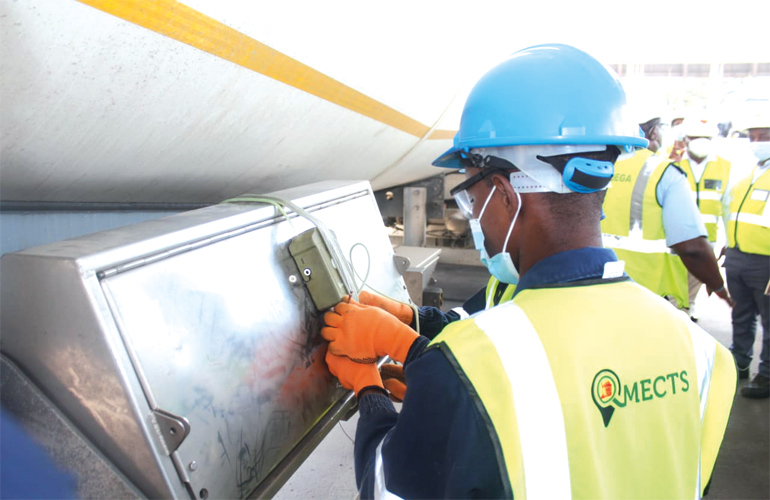Mozambique: Foreign job offers must be checked to avoid human trafficking
Mozambique: Tax Authority eyes 265.6 billion meticais in tax revenues this year

Picture: Noticias
The Mozambican Tax Authority (AT) expects to collect around 265.6 billion meticais [around US$3.5 billion at current exchange rates]in tax revenue over the current year.
Reaching this amount, according to AT president Amélia Muendane, will require additional effort from the institution, since it represents a considerable increase in relation to the 2020 target, which was readjusted to 214.1 billion meticais.
“This will require redoubled work from all of us. It is necessary to assess the extent to which AT employees are prepared to move forward, and encourage them,” Muendane told the press in the city of Matola, Maputo province.
Muendane was speaking to journalists at the end of a visit aimed at taking stock of performance in 2020 and assessing the degree of preparedness for the challenges defined for 2021, which include the management of Value Added Tax (VAT) and Corporate Income Tax (IRPC) .
“These taxes still have bottlenecks, despite a positive performance. In the IRPC, for example, there are problems, especially with large companies. It is also necessary to improve the management of the Tax Enforcement and Litigation Court,” Muendane stressed.
During her visit, Muendane also visited the Liquid Fuels Logistics Terminal at Matola port, to learn about the sealing process for cargo in transit which recently started under the management of Mozambique Electronic Cargo Tracking Services.
“We are still in the pilot phase of the project, but we already have the basic conditions to move forward, both in terms of training and in terms of infrastructure and equipment for sealing and monitoring the process, from the sealing point to completion,” she said.
‘Noticias’ learned that, although a considerable part of the merchandise in transit in Mozambique is officially destined for Zimbabwe, Malawi, Zambia, eSwatini, South Africa and the Democratic Republic of Congo, there are sometimes situations in which it is sold in national territory.
“Sealing cargo in transit will give us greater control over all goods in transit, whatever they may be, and will curb situations where those same goods may be sold illegally on the domestic market,” Muendane said.













Leave a Reply
Be the First to Comment!
You must be logged in to post a comment.
You must be logged in to post a comment.